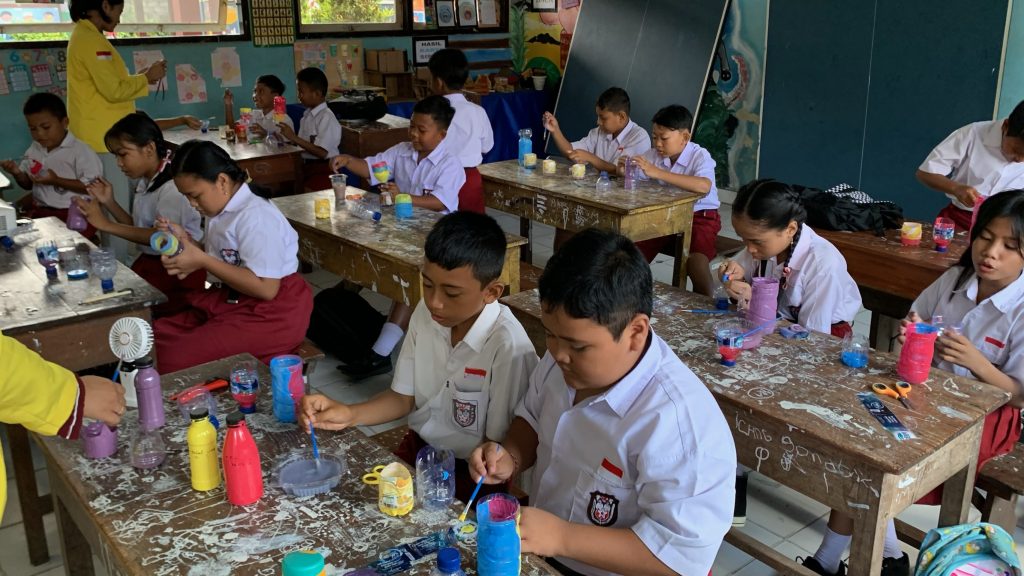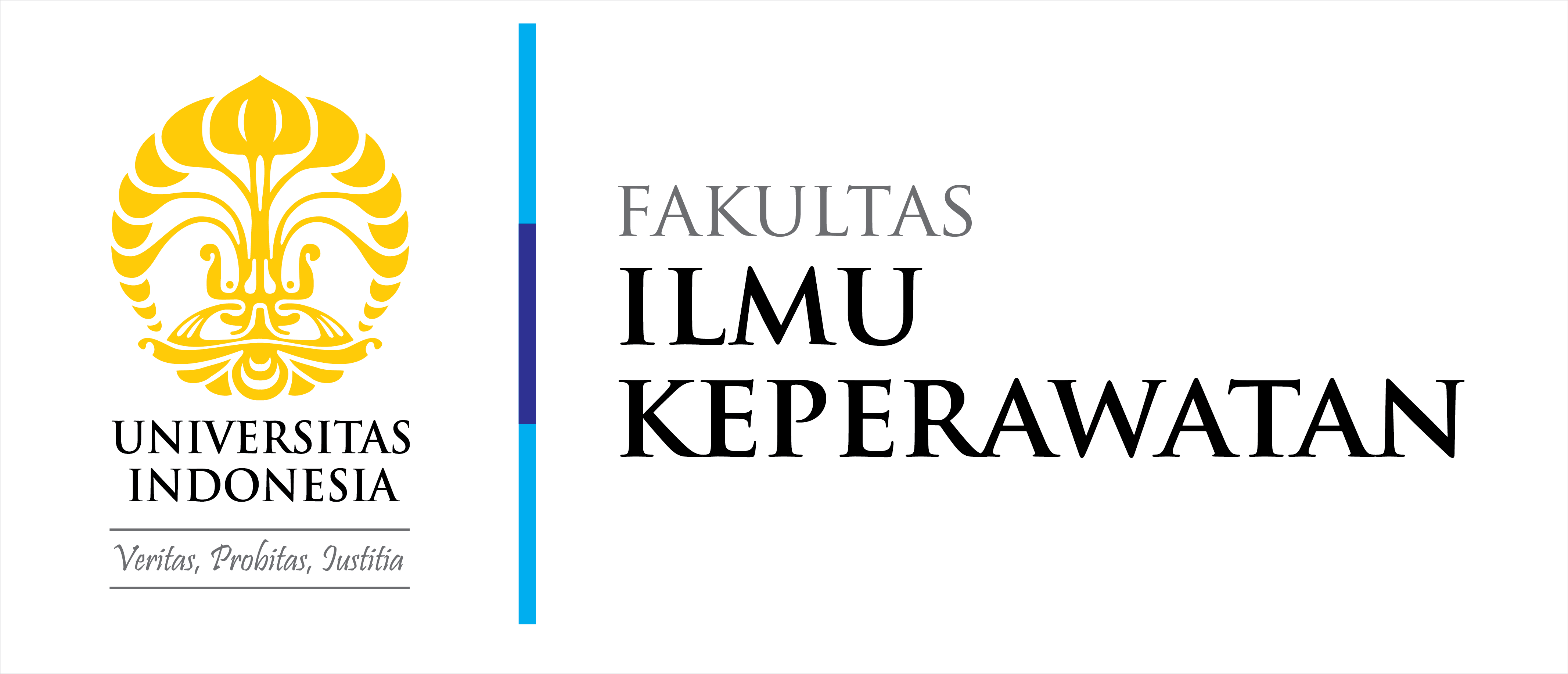
The University Indonesia (UI) PALAPA Community Service Team has once again demonstrated its commitment to supporting the implementation of the Sustainable Development Goals (SDGs), especially point 13: Climate Change Management. One of the flagship programs implemented in Kusamba Village, Bali, is waste management education and recycling training targeting elementary school students. In addition, the team also organized a beach clean-up activity involving the local community at Monggalan Beach. This concrete step aims to maintain coastal cleanliness and minimize the impact of climate change, as well as support the health and welfare of the Kusamba Village community.
Plastic waste is one of the biggest threats to marine ecosystems and contributes significantly to climate change. Poorly managed plastic pollution, especially in coastal areas such as Kusamba Village, triggers environmental damage and exacerbates global warming. Recognizing the importance of education to instill awareness of waste management from an early age, the PALAPA UI Team organized recycling training for 275 students from four elementary schools in Kusamba Village, namely SDN 1, 2, 3, and 4 Kusamba.
In the training, students are invited to understand the negative impact of plastic waste and learn how to creatively process waste into valuable items, such as plant pots, handicrafts, and simple toys. This education is expected to raise children's awareness from an early age, so that they can become agents of change in the community.
“We believe that waste management education is not only important to reduce the volume of waste, but also as a long-term effort in fighting climate change. If these children can learn early about the importance of recycling waste, they will bring positive changes to their families and communities,” said Dewita Angelina, Team Leader of PALAPA UI.
In addition to recycling skills, students are also introduced to the concepts of reduce, reuse and recycle as the three main steps in responsible waste management. This aims to reduce the use of single-use plastics in daily life and encourage a more environmentally friendly lifestyle.
A student from SDN 2 Kusamba, Putu Andika, shared his experience after attending the training, “I am happy to learn how to make pots from plastic bottles. Now I can help my mom at home by recycling used bottles into useful items.”
In addition to the education conducted in schools, the PALAPA UI team also involved the community of Kusamba Village in a beach clean-up activity at Monggalan Beach. This beach often becomes a gathering spot for plastic waste brought by ocean currents, threatening marine life and polluting the environment. Through this activity, around 100 volunteers, consisting of village residents, Karang Taruna youth, school students, and local environmental activists, worked together to clean the beach area.
“Beach clean-up is a tangible action demonstrating our concern for the environment, especially coastal areas that are severely impacted by marine debris. We hope that this activity not only cleans the beach but also raises public awareness about the importance of maintaining environmental cleanliness in a sustainable manner,” explained Petra Siahaan, a member of the PALAPA UI Team.
In the activity, the participants managed to collect more than 150 kilograms of waste, most of which consisted of plastic and used bottles. The waste was then sorted and transported for recycling, while organic waste was processed into compost that could be used by the local community.
The Dean of the Faculty of Nursing at Universitas Indonesia (FIK UI), Agus Setiawan, S.Kp., M.N., D.N., expressed full support for the activities conducted by the PALAPA UI Team in Kusamba Village. He emphasized the importance of this initiative in addressing global challenges such as climate change, as well as the significance of early education for the younger generation.
"Climate change is a challenge that must be faced together, and initiatives like those undertaken by the PALAPA UI Team in Kusamba Village are crucial. Early education on waste management and tangible actions like beach clean-ups can have a significant positive impact, not only on the environment but also in raising public awareness of the importance of preserving nature," said Agus Setiawan.
He also emphasized that the success of this program requires cross-sector collaboration. "Success in tackling climate change requires cooperation between academics, the government, and the community. With the involvement of all parties, we can create greater and more sustainable change," he added.
The Head of Kusamba Village, Nengah Semadi Adnyana, also expressed high appreciation to the PALAPA UI Team for their initiative and efforts in maintaining the cleanliness of the village and providing education on waste management. “Activities like this are very beneficial for our village, especially in facing environmental challenges such as non-degradable plastic waste. We hope that this program can continue and serve as an inspiration for other villages,” he said.
The PALAPA UI team plans to continue expanding the scope of their program by involving more parties in their climate change campaign. They aim to collaborate with local governments and the private sector to strengthen waste management systems and promote the use of environmentally friendly materials in coastal areas.
"We want this program to be sustainable, not just a one-time activity. Therefore, we are also exploring collaboration opportunities with other parties who share a similar vision of protecting the environment and addressing the impacts of climate change," added Dewita Angelina.
Through concrete steps such as waste management education and beach clean-up activities, the PALAPA UI team hopes to make a tangible contribution to protecting the environment, reducing carbon footprints, and building a community that is more concerned about the preservation of nature. This program serves as evidence that significant change can begin with small steps that involve local communities and the younger generation.

Gedung A Lantai 2, Rumpun Ilmu Kesehatan (RIK), Kampus UI Depok,
Jl. Prof. Dr. Bahder Djohan, Kampus UI Depok, Pondok Cina, Kecamatan Beji, Kota Depok, Jawa Barat 16424, Indonesia.
Jl. Prof. DR. Sudjono D. Pusponegoro, Kampus UI Depok, Pondok Cina, Kecamatan Beji, Kota Depok,
Jawa Barat 16424, Indonesia.